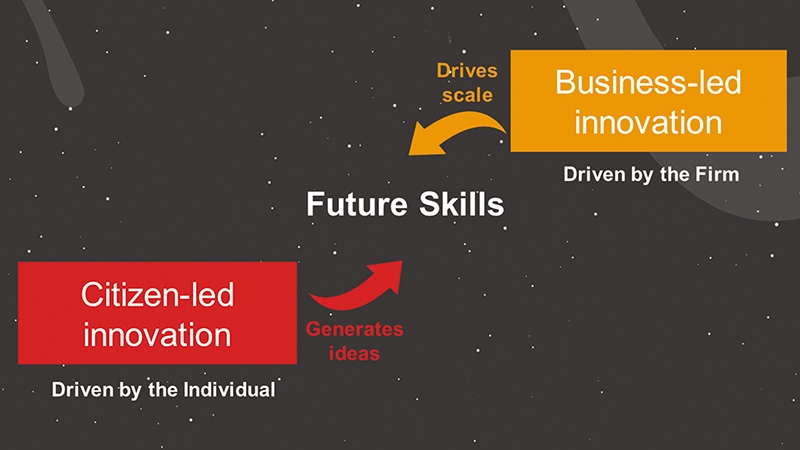Growing a solid digital workforce from within
Why is upskilling the workforce one of the biggest issues in the country today?
 |
| Dinh Thi Quynh Van, general director of PwC Vietnam |
The digital revolution requires a skills revolution. This is because technology is only as good as the people who work with it every day. Companies need people who can harness innovative thinking, form the right strategies, and apply the systems and tools that help them reap the most benefits from the digital revolution.
And that is where companies face a problem. Their people may not have the new required skills which can be hard to find in the labour market. For example, Vietnam is projected to be short of 500,000 data scientists and up to a million ICT workers by 2020, according to separate studies conducted by the Ministry of Information and Communications and APEC researchers.
That is why upskilling can be the key. It is about giving each existing employee the opportunities to gain the knowledge, tools, and abilities they need to use more advanced and ever-changing technologies in the workplace. Given the right context, people can be highly adaptable, and the ability of organisations to make use of that adaptability will be critical. The good news is that employees are more than willing to upskill. According to a new PwC survey of more than 22,000 workers across 11 countries, 77 per cent of people are willing to learn new skills now or completely retrain to improve their future employability.
When it comes to new technologies in specifics, the majority of workers (61 per cent) are positive about the impact of technology on their day-to-day work. Yet, only a third are currently given many opportunities to develop digital skills outside their normal duties.
With whom lies the responsibility when it comes to upskilling?
The responsibility lies first and foremost with each individual and each business. They should be the dual drivers of upskilling as they are also the ones to directly benefit from any action they take. Yet this is a complex problem and no single company or individual can solve this alone. It requires other decision-makers like governments and educators to join forces. Government leaders and policymakers need to ensure that they have the knowledge to drive discussion on the future of technology and regulation. Meanwhile, educational institutions need to digitally transform themselves and at the same time, provide services that are fit for the future.
 |
| The dual drivers of innovation at PwC Vietnam |
Each company will have different needs and, hence, different approaches to upskilling. But is there a basic formula to help business leaders get started?
It is about anticipating the right skills for the future, identifying any skill gaps, delivering modern upskilling programmes, and using the right education technologies to deliver a better return on related investment.
Throughout the process, transparent communications are essential. Business leaders will need to be able to articulate their strategy and its impacts towards the workforce. They should be able to explain which skills will be valued and rewarded, which will not be needed, which soft skills are required alongside digital skills, and more.
Overall, learning will need to be continuous and woven into the organisational culture. The challenge for companies is that although employees say they are willing to reskill themselves, the structure of their jobs may make it impossible to actually do this. Workers need the time, energy, and inclination to acquire new skills. That is only possible if the business creates a strong learning culture in the workplace.
What are your company’s own strategies when it comes to transforming your workforce for the digital era?
At PwC Vietnam, learning and development has always been a very strong pillar in our strategy. We invest heavily in training, not only for technical knowledge and professional qualifications, but also soft skills such as negotiation and leadership.
With the growing digital transformation within our own business and those of our clients, we have made it a clear mission to focus our strategy around “future skills”, which we define as a combination of digital and soft skills.
We support and encourage an employee-led approach to innovation because it is more effective to let people choose what they want to learn. Some of this learning takes place in classrooms, but most of it takes place through self-paced online learning modules. To provide additional support, we have an available-on-the-go learning platform for mobile devices and a digital fitness app that allows our people to monitor and improve their digital proficiency scores.
In fact, digital upskilling has become a global initiative within PwC. This month we launched “New World, New Skills” – a $3billion, four-year commitment to upskill our people across our entire global network of 157 countries and territories, and also to develop and share technologies to support clients and communities.
A proportion of our workforce will develop specialist skills in areas such as data analytics, robotic process automation, and AI for use in their work. For others, it is about understanding the potential of new technologies so that they can advise clients, communities, and other stakeholders. We also aim to work with governments, schools, and other institutions to reach a much broader group of people.
What the stars mean:
★ Poor ★ ★ Promising ★★★ Good ★★★★ Very good ★★★★★ Exceptional
Related Contents
Latest News
More News
- Vietnamese consumers express concern about climate change (October 11, 2025 | 14:06)
- ESG seen as key to Vietnam’s business credibility and capital attraction (September 29, 2025 | 18:38)
- From compliance to strategy: ESG criteria gaining ground (September 29, 2025 | 15:47)
- Vietnamese firms step up ESG game (September 23, 2025 | 15:26)
- Vietnam tax and legal changes set to shape foreign investment landscape (September 16, 2025 | 13:46)
- Vietnamese businesses navigate US tariffs (June 25, 2025 | 12:14)
- The impact of cloud, AI, and data on financial services (April 14, 2025 | 11:20)
- Vietnam 2025 M&A outlook: trends, deals, and opportunities (March 21, 2025 | 08:54)
- Vietnam's M&A landscape mirrors global trends (February 18, 2025 | 17:13)
- Asia-Pacific CEOs enter 2025 with optimism and caution (February 06, 2025 | 17:16)

 Tag:
Tag:

















 Mobile Version
Mobile Version